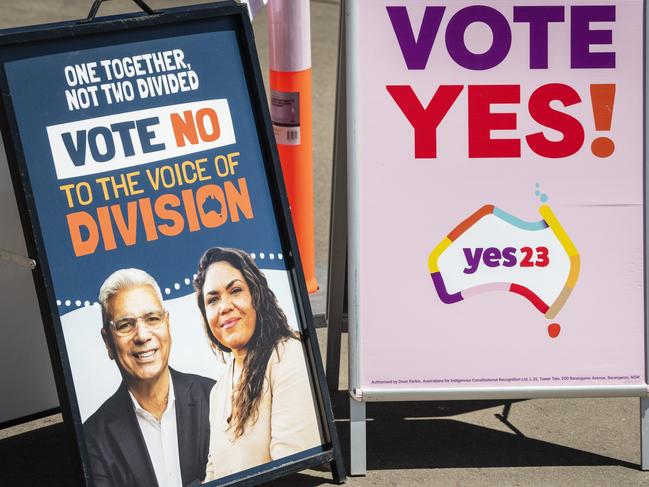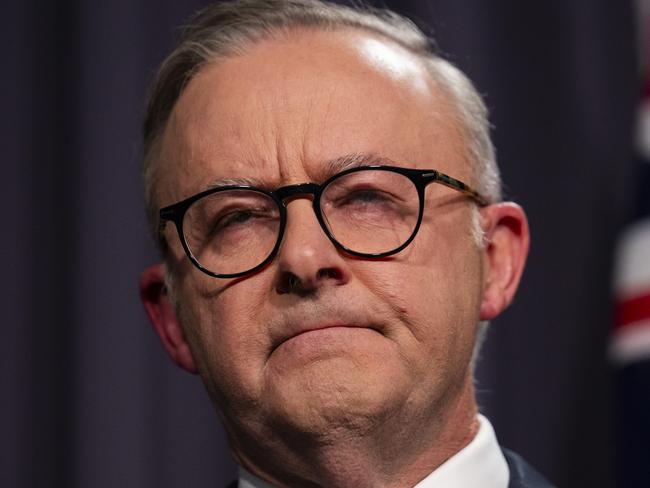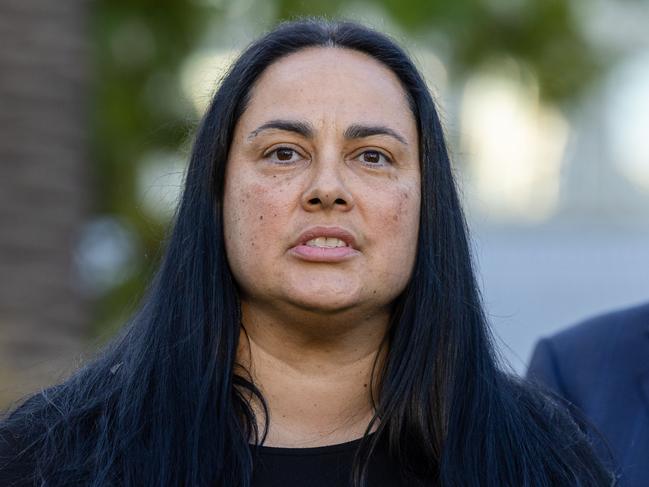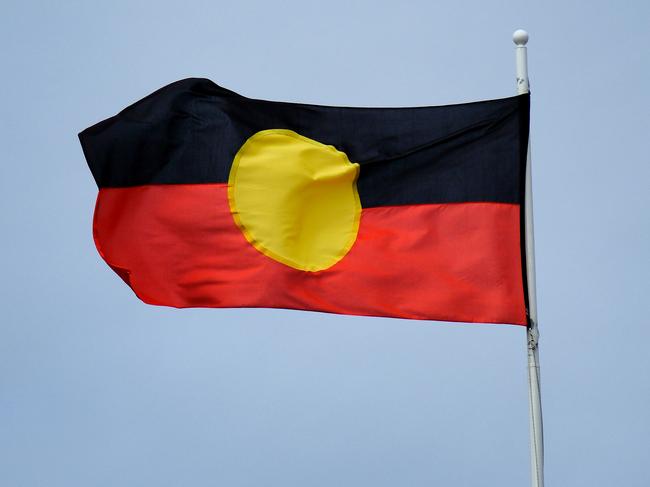Victoria’s treaty: Allan government set for tense negotiations after failed Voice referendum
Sources are warning that some Indigenous groups are feeling “robbed” by the Voice referendum result and will be pushing for “much more” as Victoria’s treaty negotiations get underway in the coming days.
Victoria
Don't miss out on the headlines from Victoria. Followed categories will be added to My News.
Victoria’s treaty negotiations are set to begin within days, but sources warn that the process is likely to be protracted with some Indigenous groups still angered by the failed Voice referendum and are “out for blood”.
Treaty insiders confirmed that the roundtable talks between the state government and dozens of Indigenous groups will kick off on November 21.
Ahead of the talks, facilitated by the Treaty Authority, sources have told the Sunday Herald Sun that Indigenous groups have been increasingly fractured in what they want for the state as well as their individual groups.
It is widely acknowledged that groups will be asking for more control over policy, better education about the historical treatment of Indigenous people during colonisation, and some parcels of land with cultural value to be handed back to Indigenous groups.

However, a source told the Sunday Herald Sun that some Victorian groupings feel “robbed” by the federal government’s failed Voice referendum result and are “out for blood” and will be pushing for “much more”.
Former premier Daniel Andrews originally proposed negotiating a treaty in Victoria and put new laws to parliament to pave the way in an Australian first.
In 2022, legislation was passed in the Victorian parliament with bipartisan support for establishing a Treaty Authority, which included $65m in initial funding.
However, treaty was put under a cloud in January this year when Coalition support wavered in the wake of the referendum.

The state opposition also flagged growing concern about the impact of Aboriginal Cultural Heritage laws on new developments and the government’s Big Build agenda.
Significant questions also remain about what the Labor government is willing to hand over to clinch a deal.
Earlier in the year, the Allan government indicated that it would not rule out giving compulsorily acquired private property to Indigenous groups.
Premier Jacinta Allan has also left the door open to a new public holiday to celebrate Aboriginal culture.
Under the state’s Treaty Negotiation Framework, the state does not need to seek the general public’s approval to sign off on any treaty agreements.
The Supreme Court will also be able to enforce any parties who fail to uphold their end of the bargain.
It is understood the state government will pursue a statewide treaty to drive bigger picture reform.
But this will be accompanied with multiple treaties for individual groups, which will contain separate reparations and land use agreements.
Ahead of negotiations, Shadow Minister for Aboriginal Affairs Peter Walsh said: “Victorians should be alarmed that the Allan Labor government is starting secret treaty negotiations.
“Without openness and transparency, Victorians will never know what rights or access to land and water will be traded away without their knowledge or agreement.”
Ngarra Murray, co-chair of the First Peoples’ Assembly of Victoria, said the treaty was about supporting the Indigenous community’s progress.
“Treaty is about making sure Aboriginal communities can use local knowledge to come up with practical solutions at a local level,” she said.
“The Assembly is sitting down with the Victorian government to come up with practical solutions on key issues for Aboriginal communities – from caring for the land and keeping culture strong to improving the way services like health and education are delivered.
“These upcoming negotiations are an opportunity to make sure that decisions about Aboriginal communities are made by Aboriginal people.”

Minister for Treaty and First Peoples Natalie Hutchins said treaty was about perfecting policy.
“If you listen to the people directly affected by policies, you get better outcomes – that’s commonsense,” she said.
“Treaty is about making a better and fairer state for every Victorian.”
It is understood that state government representatives have recently met with local council representatives and other local community leaders in Shepparton, Keilor, Broadmeadows, Horsham, Frankston, and Geelong ahead of negotiations next week.
Federal Senator Jacinta Price said Victoria pursuing treaty in the wake of the No vote on the Voice was concerning.
She also criticised the Allan government for negotiating behind closed doors and for not being transparent about the upcoming process.
“The truth is, if the Victorian and federal governments thought Australians were truly in favour of truth and treaty, there would be no reason for them to be going about these matters in the surreptitious way they are.”

What is Treaty?
A process of engagement between the state government and Indigenous representatives with the aim of closing the social andeconomic gap – otherwise called the “opportunity gap”.
Who is involved?
The Victorian government has been working directly with the First People’s Assembly of Victoria – an elected body representing various Aboriginal groups across the state.
Five Commissioners were also selected by an independent panel to sit on the Yoorrook Justice Commission.
What is the Yoorrook Justice Commission?
The Commission has been tasked with investigating systemic injustices, racism, discriminatory laws and policy failures against Indigenous Victorians, and to explore solutions. It is described as a “truth-telling” process about the harms of colonisation.
What has the Commission proposed?
The Yoorrook for Justice report into the Victorian child protection and criminal justice systems proposed 46 recommendations.
They included the state adopting a separate child protection system for Aboriginal kids, different ways to deal with Aboriginal offenders, and an expansion of the Koori family court.
Calls were also made for Indigenous representatives to be able to quiz future Chief Commissioners of Police about colonisationand racism.
What the Commission says:
“For First Peoples, the child protection system has long been a source of injustice and trauma and a pipeline into the criminaljustice system. Despite numerous inquiries and political promises, these systems remain broken for Aboriginal people. This report provides a road map to end the injustice against our mob and deliver genuine self-determination, creating a better future for all Victorians” – Deputy Chair Sue-Anne Hunter.
What the government says:
“I acknowledge the trauma experienced by many First Peoples who shared their truths during the Commission’s inquiry into Victoria’s child protection and criminal justice systems. Our path forward will be guided by the experiences of First Peoples” – Premier Jacinta Allan
Recommendations: Accepted 28 in principle or in full, considering 15 more and have rejected three relating to existing legislation.
What other key Indigenous figures say:
“Separate development and focusing on differences is never the solution – it is the problem” – Indigenous affairs academic and commentator Anthony Dillon
“It’s a form of apartheid” – Wurundjeri elder Ian Hunter
What did our leaders tell the Commission?
Asked if the state was “setting aside money” to purchase land for Indigenous Victorians as part of Treaty settlements, Premier Jacinta Allan said “I’m simply not in a position to be able to canvas today”.
“Since colonisation, schools, and the education system as a whole, have played a significant part in reinforcing racist perceptionsand stereotypes about First Peoples, while minimising (or eradicating) their perspectives in favour of false narratives about colonial history” – Education Minister / Deputy Premier Ben Carroll
What other ideas have been proposed?
The Assembly has proposed a new Victorian public holiday to celebrate Aboriginal culture and will request more control overfunds spent on Indigenous affairs.
What is the Treaty process costing us?
An initial $65 million was provided to establish a Treaty, along with funding for some ongoing costs.
Do we get a say?
No, the negotiations are between the Indigeneous representatives and the state government.


